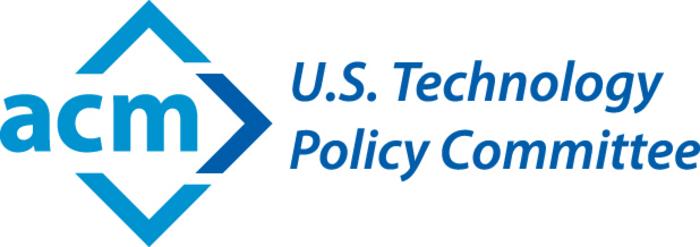The Association for Computing Machinery’s US Technology Policy Committee (USTPC) has released a “Statement on Mass Cybersecurity Incidents Likely to Recur.” On July 18, 2024, CrowdStrike, a US-based cybersecurity technology company, released a sensor configuration update which caused a global outage affecting an estimated 8.5 million computers. Several critical infrastructure sectors including airlines, 911 emergency systems, banks, government agencies, healthcare, and hospitals around the world were impacted.
The Association for Computing Machinery’s US Technology Policy Committee (USTPC) has released a “Statement on Mass Cybersecurity Incidents Likely to Recur.” On July 18, 2024, CrowdStrike, a US-based cybersecurity technology company, released a sensor configuration update which caused a global outage affecting an estimated 8.5 million computers. Several critical infrastructure sectors including airlines, 911 emergency systems, banks, government agencies, healthcare, and hospitals around the world were impacted.
While CrowdStrike has provided some information as to how the accident happened, ACM USTPC urges that all the details be thoroughly and publicly investigated so that system operators, technologists, and policymakers can take steps to guard against such accidents in the future.
“The CrowdStrike incident underscored weaknesses in two kinds of infrastructures,” explains Jody Westby, CEO, Global Cyber Risk LLC and a principal author of the new USTPC Statement. “On one level, we realized that the global technical infrastructure is fragile. Despite the fact that the latest technologies had been deployed to protect these systems, a major outage still occurred. At the same time, we also realized that our existing legal and policy infrastructure is insufficient to respond to these kinds of attacks. A great deal of work needs to be done to shore up both of these kinds of infrastructures, and we hope this USTPC Statement will bring attention to these critical needs.”
The USTPC Statement also notes that “…the global nature of the outage highlights the need for improved international cooperation and coordination. The ability of companies globally to obtain information about the outage, government efforts, and technical guidance was largely deficient, and each country and company was on its own—particularly if their systems were down.”
“The scale of the CrowdStrike accident was certainly unprecedented, and its reach into critical infrastructures was alarming on many levels,” added Carl Landwehr, visiting professor at the University of Michigan, and a principal author of the ACM Statement. “But to computer scientists familiar with the underlying technology, this accident is not especially surprising, and future incidents are, unfortunately, almost a certainty. We need to learn more about how this happened to mitigate any potential repeat of this disaster. As a non-partisan organization of computer scientists who advise government leaders on technology policy, we have outlined eight key questions that should form the basis of a public investigation.”
In surveying what they know about the CrowdStrike incident, the ACM experts noted that while the update caused thousands of Microsoft Windows-based systems to crash, systems based on Linux, Mac OS, and other operating systems were unaffected.
The eight core questions posed in the USTPC Statement include:
- How did some systems avoid the consequences of this error, while others did not?
- Why was the errant software released without thorough testing?
- What lessons can we draw concerning the architecture and implementation of systems?
- What best practices should be followed for automatic system updates?
- Why were some systems able to come back up faster than others?
- What were the most efficient ways to restart systems that required manual intervention?
- What notification should be required?
In suggesting next steps, the USTPC members urged that the public investigation of the CrowdStrike incident should be undertaken by the US government’s Cyber Safety Review Board (CSRB).
The full USTPC Statement may be accessed here.
In addition to principal authors Carl Landwehr and Jody Westby, USTPC members Andrew Grosso, Jim Hendler, Jeanna Matthews, Stuart Shapiro, Gene Spafford, and Alec Yasinsac provided helpful comments in the development of the Statement.
About the ACM US Technology Policy Committee
ACM’s US Technology Policy Committee (USTPC) serves as the focal point for ACM’s interaction with all branches of the US government, the computing community, and the public on policy matters related to information technology. The Committee regularly educates and informs Congress, the Administration, and the courts about significant developments in the computing field and how those developments affect public policy in the United States.
About ACM
ACM, the Association for Computing Machinery, is the world’s largest educational and scientific computing society, uniting computing educators, researchers, and professionals to inspire dialogue, share resources, and address the field’s challenges. ACM strengthens the computing profession’s collective voice through strong leadership, promotion of the highest standards, and recognition of technical excellence. ACM supports the professional growth of its members by providing opportunities for life-long learning, career development, and professional networking.
###





